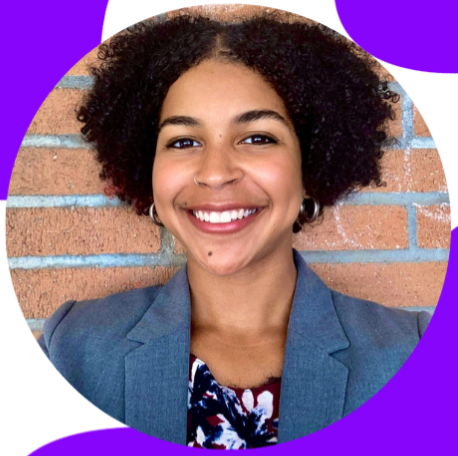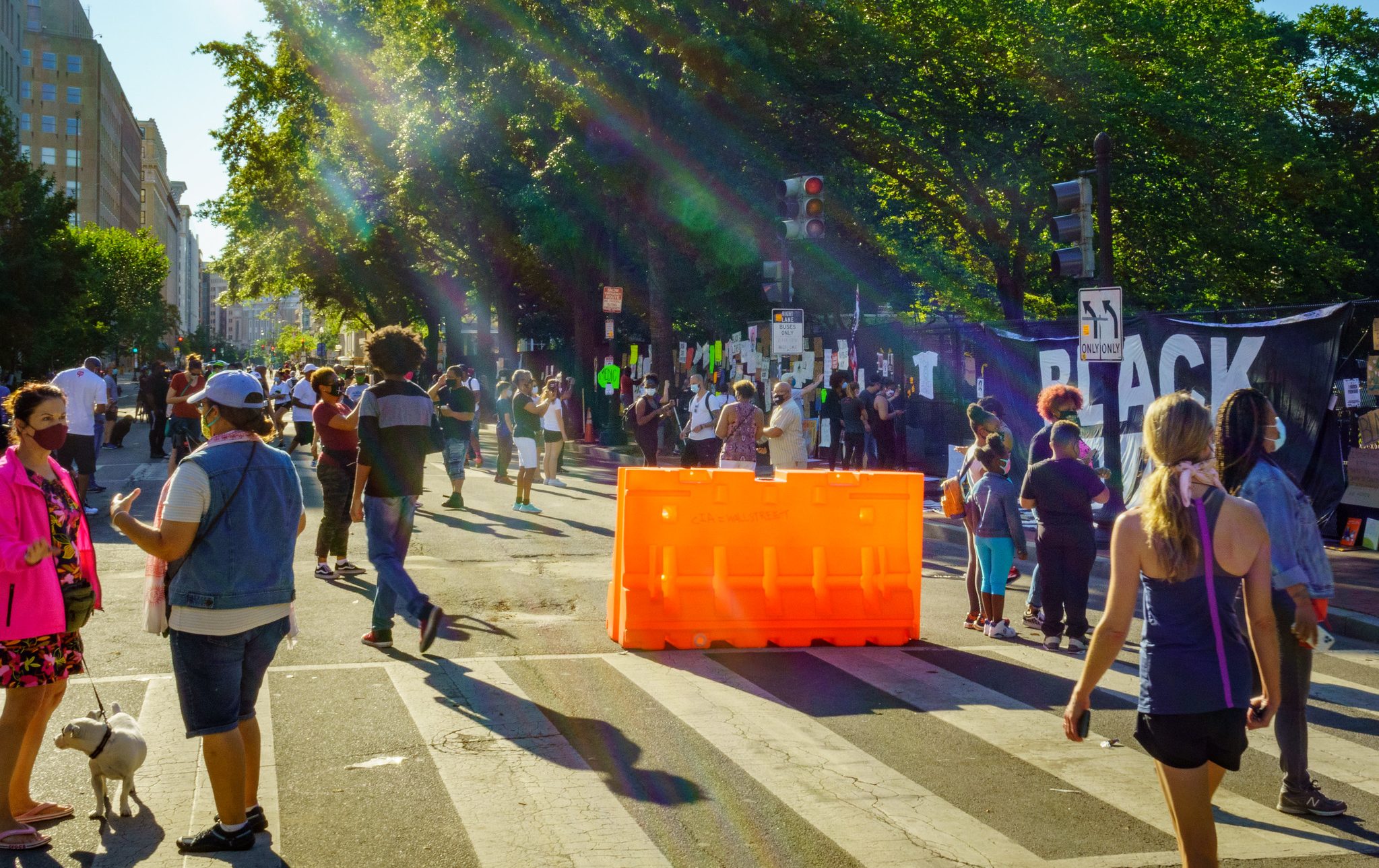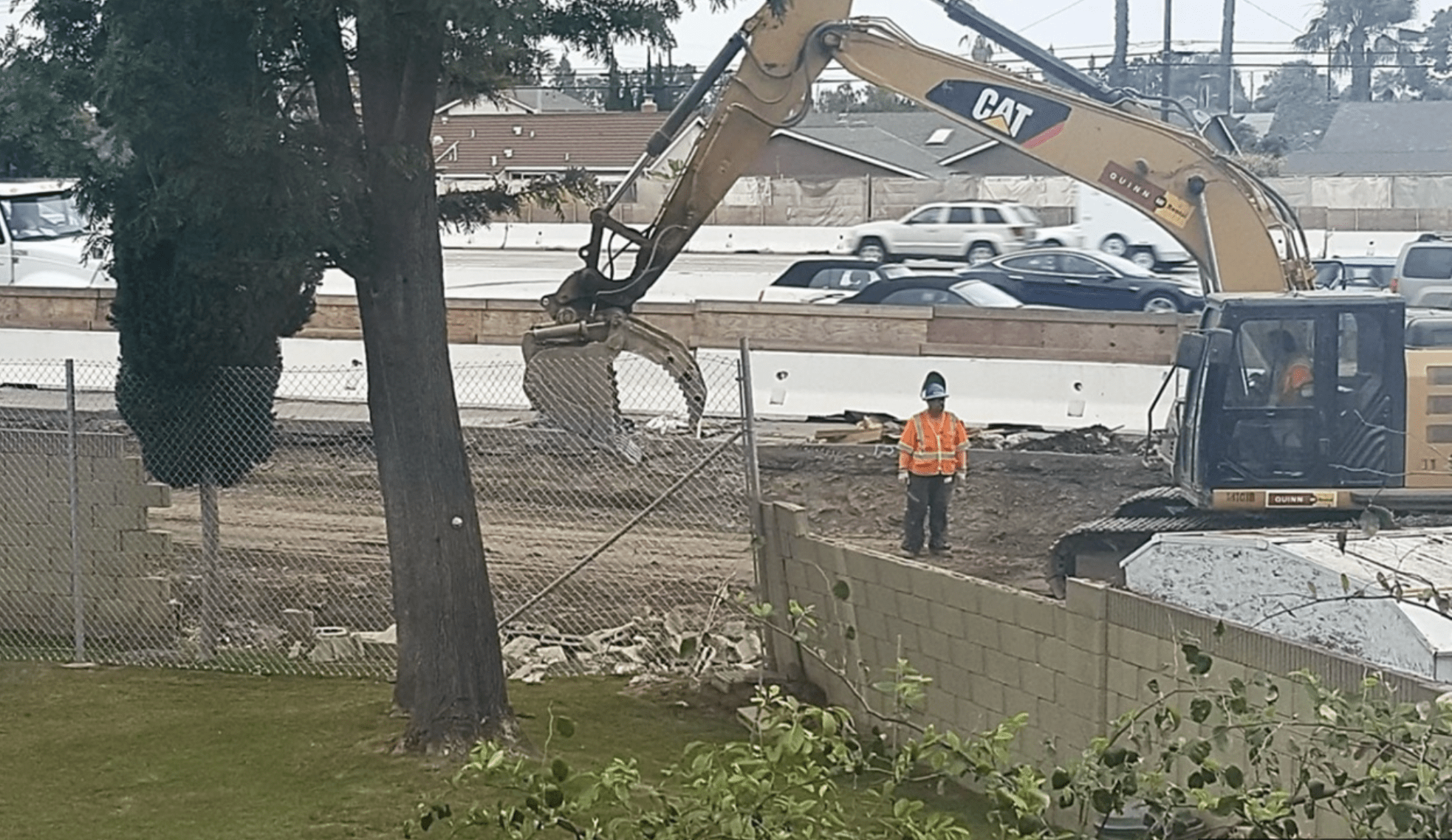How the Next Generation of Mobility Justice Leaders Are Fighting For Transportation Equity
... and what they wish other transportation advocates knew about their work.
10:06 AM EST on February 28, 2024
Whether they call it "transportation equity," "mobility justice," or something else entirely, it seems like more and more people are talking about how our culture and policy choices impact the most marginalized on our roads and beyond. But what do those talked-about terms really mean today — and how should they shape our future?
To find out, we asked this year's National Youth Transportation Equity Fellows, a group of powerhouse leaders between 17 and 29 at the vanguard of mobility justice advocacy. And along the way, they reflected on their personal experiences of making that concept real in their communities, as planners, activists, neighbors and more.
This conversation was facilitated by Jacob Smith, executive director of the National Organizations for Youth Safety, which sponsors the group; it has been edited for clarity and length.
Jacob Smith: What does the term "transportation equity" mean to you?
Prem Subedi: As a person with disabilities who uses a mobility device — [in my case], a power wheelchair — I’m dependent on transit service. So what mobility justice means for me is funding for sidewalks, transit, bike lanes in the same way that we fund highways.

If you ever want to expand a highway, it’s not difficult to get funding. You don’t need to pass a levy or a bond; the DOT can just approve it. However, if you want to build a sidewalk, build a transit network, or make a bike lane, you often have to fund it through voter-approved sales taxes, which disproportionately impact lower income people…In 2023, we’re still making horrible decisions for the world and for younger generations.

Mia Lewis: I think of it as having equal access to move throughout your city, regardless of the neighborhood you live in, or your background, or your income, or whether or not you have a car.
Fatima Elkott: And I would also add that I think it's the freedom to feel safe, while taking different modes of transportation, and while being whoever you are. It's about having the dignity, having the safety, having the freedom to move in whatever way most now, appealing to you. Having that be a true choice would be equity in my eyes.

Shayanna Hinkle-Moore: I want to add that not only like should people be able to use the transportation [network], but if there's new transportation added, it shouldn't have a negative impact. We shouldn't go into somebody's neighborhood and [increase] pollution; the impact should be positive for everybody.
Jacob Smith: What's one thing that you wish sustainable transportation advocates in general knew about the transportation equity movement, specifically?

Fatima Elkott: I wish people would just be more considerate about what transportation equity is. I don't think it's "so we can have bike races all the time." ... That's something that I wish people were a little bit more adamant about."
I wish people would just be more considerate about what transportation equity is. I don't think it's "so we can have bike races all the time." ... That's something that I wish people were a little bit more adamant about.
Jacob Smith: I'd add that transportation equity did not just come about in 2020. ... Our folks have been talking about transportation equity for decades, and resisting, and fighting for accessible communities. I think that's something that folks should know; that there's a long history of our communities leading in this work — and not just being the beneficiaries.

Stellan Knowles: Yeah, I think about Brad Lomax’s experience ... I just think about how much we still need to be doing with some of the sidewalks around our cities.
Calah Gipson: I wish that the human component was more centered. I feel like a lot of transit advocates will talk about how great it is to have bike lanes or light rail or things like that, [that they'll be] 'great for the environment.' But [they] won't go to communities and talk to them about what would make the most sense in their neighborhoods ... Even people who aren't avid cyclists or diehard transit advocates — [these] people still live this every day.
Also, I hate when people think that electric vehicles are the answer. Because it's still a car, so it still has its own issues.

Jacob Smith: Yeah, I really like how you brought up [the importance of] a human-centric understanding of transportation equity ... We need to be centering, like, building a sidewalk to make a community more accessible for disabled folks, or to make the city more vibrant for everyone — that should be at the forefront of your solutions, instead of saying that it's going to increase economic activity, y’know? [Laugh].
Mia Lewis: For me, it's definitely about being able to access the things that we care about. I think that a lot of times the conversation is [focused] on just jobs and employment. But access to arts and culture, to family and community, to parks and recreation — all of those different things [matter too].
Fatima Elkott: Yes, seconded and highlighted and bolded and circled.
Jacob Smith: What single aspect or issue within the broader transportation equity conversation interests you most?
Calah Gipson: Lately, I've been really interested in the ways streets can be reimagined, or brought back to the way they used to be before cars were considered the primary users. ... The Open Streets idea is everywhere in the country. [So are] Slow Streets, Play streets, or School Streets; instead of having school zones, it's like the entire street around the school is just either completely closed off to cars or redesigned so that it's acknowledged at all times that kids are going to be here. Not [just saying] "oh, try not to speed when ... the kids are walking to school," but fully reimagining the street so ... the streets are for people first and foremost.
Jacob Smith: What's one important question that no one's ever asked you about transportation equity, and how would you answer?
Calah Gipson: I got my bachelor's degree in social work, and I was the only person in my entire cohort who did anything that wasn't direct, one-to-one therapy type stuff. So anyt ime I would present to my class about what I was working on [related to] transit, it felt really hard to explain to them why that was important to talk about.
Once you start working within this realm of transit equity, you start realizing just how all-encompassing it is, and how it touches all aspects of life, both [in terms of] recreation and also just getting places and just having access to the city. Like if transit and sidewalks are well-made enough, people wouldn't feel the need to have a car.
Fatima Elkott: I don't think anybody ever talks about transportation equity. That's still a problem. I think this is actually the first group I've ever been a part of that uses the terms "transportation justice," or "mobility justice," or "transportation equity." So I think having any conversations about transportation equity would be nice.
Jacob Smith: What would real transportation equity look like in your community?
Mia Lewis: I live in Inglewood, California, and here, it would definitely be prioritizing the needs of working people and families over multimillion dollar businesses that don't care at all about the people and the history here. [They're] just continually trying to draw in people from other area who don't understand the history and the character of the people in this neighborhood. [We should be] prioritizing people over corporate dollars and whatever stadiums they're building.
Fatima Elkott: We always talk about how transportation is the great equalizer. Especially in the south, we see that disparity so much; it's literally either those who can afford a car ... compared to someone who has no other options and has to take transit or has to walk. Especially in Florida, where it's super uncomfortable to do anything that's not in an air conditioned space. If we had adequate transportation facilities, that would, obviously, not get rid of classism. But at least we would have a space where you wouldn't see the disparities so clearly — and [for those] who couldn't afford a car, at least you wouldn't feel that lack of dignity so strongly.
Stellan Knowles: I think it would look like the people of Memphis not having to pay for everything themselves — not having to pay court costs higher than the ticket amount they were given, not having to pay more just for the sidewalks to be fixed. I think it would look like having our bus system up and running everywhere — not just sidestepping the Black neighborhoods, but coming through them and serving everyone. Hopefully, [it would look like] the stigma around riding the bus dying down as well. Kind of like you were saying, Fatima; allowing transit to be the equalizer, and people not just saying, "Oh, it doesn't affect me; only the poor people and old people take the bus, I don't really care." [It would look like being able to] actually move through the city freely, and without limits.
Fatima Elkott (Tampa, Fla.) is a first-gen American, urban planner, facilitator, community organizer, and activist focused on pathways for community connections and action
Calah Gipson (Memphis, Tenn.) has a passion for safe, sustainable, and accessible communities. They are a recent college graduate with a bachelor's degree in Social Work.
Shayanna Hinkle-Moore (East Columbus, Ohio) is a recent graduate from Ohio State University where she majored in Public Affairs and City and Regional Planning.
Mia Lewis (Inglewood, Calif.) is a second-year Master of Urban Planning student at UCLA, concentrating in Transportation Planning and Policy.
Stellan Knowles is a change maker, community organizer and activist born and raised in Memphis, Tenn.
Prem Subedi (Seattle, Wash.) is a Bhutanese refugee who immigrated to the U.S. from Nepal in 2010. He is currently studying computer science and sociology at Highline College.
Learn more about all the National Youth Transportation Equity Fellows and their work here.
One of the quotes above was revised at the request of the speaker.
Read More:
Stay in touch
Sign up for our free newsletter
More from Streetsblog USA
Friday Video: How to Make Places Safe For Non-Drivers After Dark
A top Paris pedestrian planner, a leading GIS professional, and Streetsblog's own Kea Wilson weigh in on the roots of America's nighttime road safety crisis, and the strategies that can help end it.
OPINION: Congestion Pricing Will Help My Family Get Around As We Navigate Cancer Treatment
My partner was recently diagnosed with cancer. Congestion pricing will make getting her to treatment faster and easier.
Talking Headways Podcast: Money is a Lot of Different Things
It's Part II of our discussion with Jim Kumon!
If Thursday’s Headlines Build It, They Will Come
Why can the U.S. quickly rebuild a bridge for cars, but not do the same for transit? It comes down to political will and a reliance on consultants.
Wider Highways Don’t Solve Congestion. So Why Are We Still Knocking Down Homes for Them?
Highway expansion projects certainly qualify as projects for public use. But do they deliver a public benefit that justifies taking private property?





